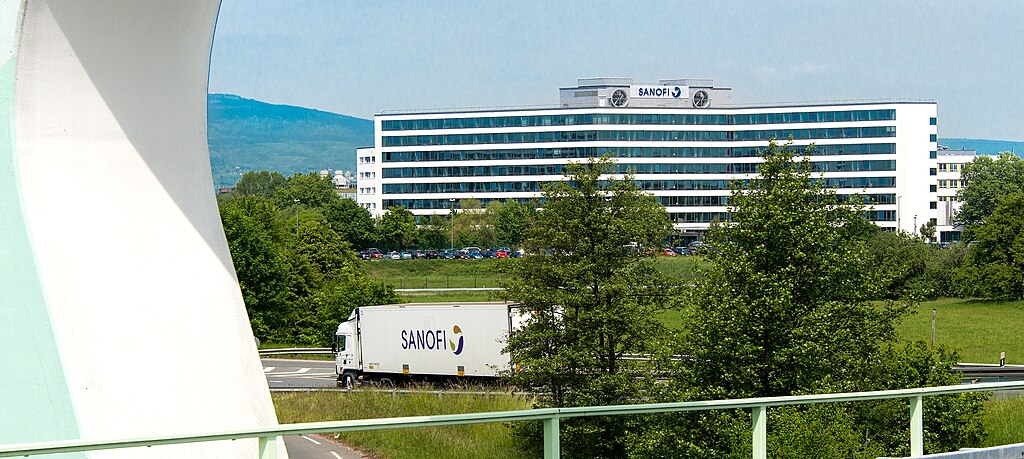The U.S. Food and Drug Administration (FDA) has approved Qfitlia, a groundbreaking hemophilia treatment by French pharmaceutical giant Sanofi (NASDAQ: SNY). Designed for patients aged 12 and older with hemophilia A or B, with or without inhibitors, Qfitlia offers a major shift in treatment convenience with its bimonthly subcutaneous (under-the-skin) dosing—compared to weekly or even daily injections currently on the market.
This first-in-class therapy works by reducing antithrombin, a protein that delays blood clotting, and significantly lowers the risk of bleeding episodes. In clinical trials, Qfitlia showed a 90% reduction in annualized bleeding rates compared to traditional on-demand treatments, highlighting its effectiveness in preventing spontaneous and injury-related bleeding.
Set for U.S. launch in April, Qfitlia will carry an annual list price of $642,000 for most patients, according to Brian Foard, Sanofi’s head of specialty care. U.S.-listed shares of Sanofi rose 1.7% following the approval announcement.
With approximately 33,000 males in the United States living with hemophilia, according to the CDC, Qfitlia provides a much-needed quality-of-life improvement. Unlike traditional factor replacement therapies, or newer gene therapies like CSL’s Hemgenix and BioMarin’s Roctavian, Qfitlia introduces a convenient and effective middle ground.
Experts like Margaret Ragni, professor at the University of Pittsburgh, emphasize the benefit: “Taking a drug every other month is a remarkable simplification for patients.”
As the hemophilia treatment landscape evolves, Sanofi’s Qfitlia could mark a new standard in care by balancing convenience, innovation, and efficacy for patients with this rare and chronic blood disorder.



 Trump Signs Executive Order to Boost AI Research in Childhood Cancer
Trump Signs Executive Order to Boost AI Research in Childhood Cancer  Is space worth the cost? Accounting experts say its value can’t be found in spreadsheets
Is space worth the cost? Accounting experts say its value can’t be found in spreadsheets  Neuralink Plans High-Volume Brain Implant Production and Fully Automated Surgery by 2026
Neuralink Plans High-Volume Brain Implant Production and Fully Automated Surgery by 2026  CDC Vaccine Review Sparks Controversy Over Thimerosal Study Citation
CDC Vaccine Review Sparks Controversy Over Thimerosal Study Citation  SpaceX Starship Explodes in Texas During Test, Citing Nitrogen Tank Failure
SpaceX Starship Explodes in Texas During Test, Citing Nitrogen Tank Failure  Rio Tinto Shares Hit Record High After Ending Glencore Merger Talks
Rio Tinto Shares Hit Record High After Ending Glencore Merger Talks  Eli Lilly’s Inluriyo Gains FDA Approval for Advanced Breast Cancer Treatment
Eli Lilly’s Inluriyo Gains FDA Approval for Advanced Breast Cancer Treatment  Kroger Set to Name Former Walmart Executive Greg Foran as Next CEO
Kroger Set to Name Former Walmart Executive Greg Foran as Next CEO  NASA Faces Major Workforce Reduction as 20% of Employees Prepare to Leave
NASA Faces Major Workforce Reduction as 20% of Employees Prepare to Leave  NASA Astronauts Wilmore and Williams Recover After Boeing Starliner Delay
NASA Astronauts Wilmore and Williams Recover After Boeing Starliner Delay  OpenAI Expands Enterprise AI Strategy With Major Hiring Push Ahead of New Business Offering
OpenAI Expands Enterprise AI Strategy With Major Hiring Push Ahead of New Business Offering  Global PC Makers Eye Chinese Memory Chip Suppliers Amid Ongoing Supply Crunch
Global PC Makers Eye Chinese Memory Chip Suppliers Amid Ongoing Supply Crunch  Cogent Biosciences Soars 120% on Breakthrough Phase 3 Results for Bezuclastinib in GIST Treatment
Cogent Biosciences Soars 120% on Breakthrough Phase 3 Results for Bezuclastinib in GIST Treatment  Blue Origin’s New Glenn Achieves Breakthrough Success With First NASA Mission
Blue Origin’s New Glenn Achieves Breakthrough Success With First NASA Mission  FDA Targets Hims & Hers Over $49 Weight-Loss Pill, Raising Legal and Safety Concerns
FDA Targets Hims & Hers Over $49 Weight-Loss Pill, Raising Legal and Safety Concerns  Missouri Judge Dismisses Lawsuit Challenging Starbucks’ Diversity and Inclusion Policies
Missouri Judge Dismisses Lawsuit Challenging Starbucks’ Diversity and Inclusion Policies  Nvidia, ByteDance, and the U.S.-China AI Chip Standoff Over H200 Exports
Nvidia, ByteDance, and the U.S.-China AI Chip Standoff Over H200 Exports 































